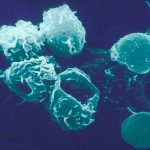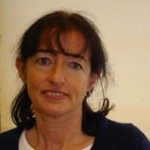Lien vers Pubmed [PMID] – 17201678
Annu. Rev. Immunol. 2007;25:745-85
Blood cells are constantly produced in the bone marrow (BM) of adult mammals. This constant turnover ultimately depends on a rare population of progenitors that displays self-renewal and multilineage differentiation potential, the hematopoietic stem cells (HSCs). It is generally accepted that HSCs are generated during embryonic development and sequentially colonize the fetal liver, the spleen, and finally the BM. Here we discuss the experimental evidence that argues for the extrinsic origin of HSCs and the potential locations where HSC generation might occur. The identification of the cellular components playing a role in the generation process, in these precise locations, will be important in understanding the molecular mechanisms involved in HSC production from undifferentiated mesoderm.


